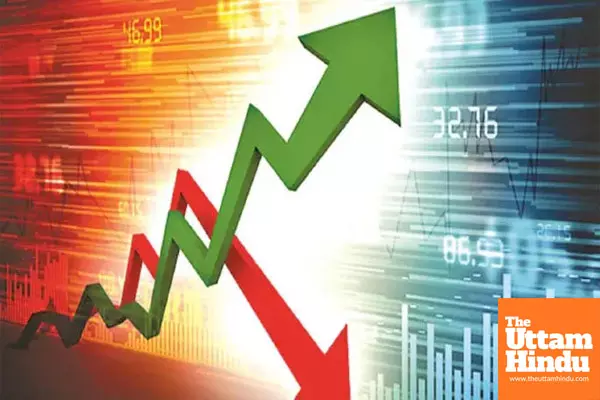
Sensex and Nifty Open Lower as RBI MPC Decisions Loom and Tariff Concerns Escalate

Mumbai(The Uttam Hindu): Indian equity indices opened lower on Wednesday, following a decline in global markets, as U.S. President Donald Trump threatened additional tariffs on the global pharmaceutical sector. Ahead of the Reserve Bank of India's (RBI) monetary policy committee (MPC) meeting, where a 25 basis points repo rate cut and a shift in stance from 'neutral' to 'accommodative' is anticipated, the Sensex dropped 302 points, or 0.41%, to 73,939, while the Nifty fell 107 points, or 0.48%, to 22,433 in early trading. Both midcap and smallcap indices also experienced losses. The Nifty midcap 100 index was down by 436 points, or 0.87%, at 49,402, and the Nifty smallcap 100 index fell 150 points, or 0.98%, to 15,238.
Sector-wise, auto, FMCG, and consumption stocks showed some gains, while IT, PSU banks, pharma, metals, realty, infrastructure, and commodities faced declines. Among the Sensex constituents, Power Grid, Nestle, HUL, M&M, ITC, Asian Paints, and Bharti Airtel were major gainers. On the other hand, Maruti Suzuki, Bajaj Finserv, Tata Steel, Tech Mahindra, Infosys, HCL Tech, TCS, and Sun Pharma saw significant losses. Devarsh Vakil, Head of Prime Research at HDFC Securities, noted, "We expect continued volatility in the markets as traders adjust to the weekly derivative expiry today." He added, "FPI traders had purchased index options ahead of the expiry, reflecting their expectation of increased market volatility."
Global markets were also in the red, with major Asian indices in Tokyo, Hong Kong, and Seoul witnessing declines. The U.S. markets closed lower on Tuesday, driven by concerns over a potential recession. The U.S. announced plans to impose a 50% additional tariff on imports from China, in retaliation for China’s 34% tariff hike announced last week. This move will push the U.S. tariff rate on Chinese imports to 104%, escalating trade tensions and raising fears of an economic slowdown. Trump's sweeping tariff actions have disrupted global trade relations that have existed for decades.

